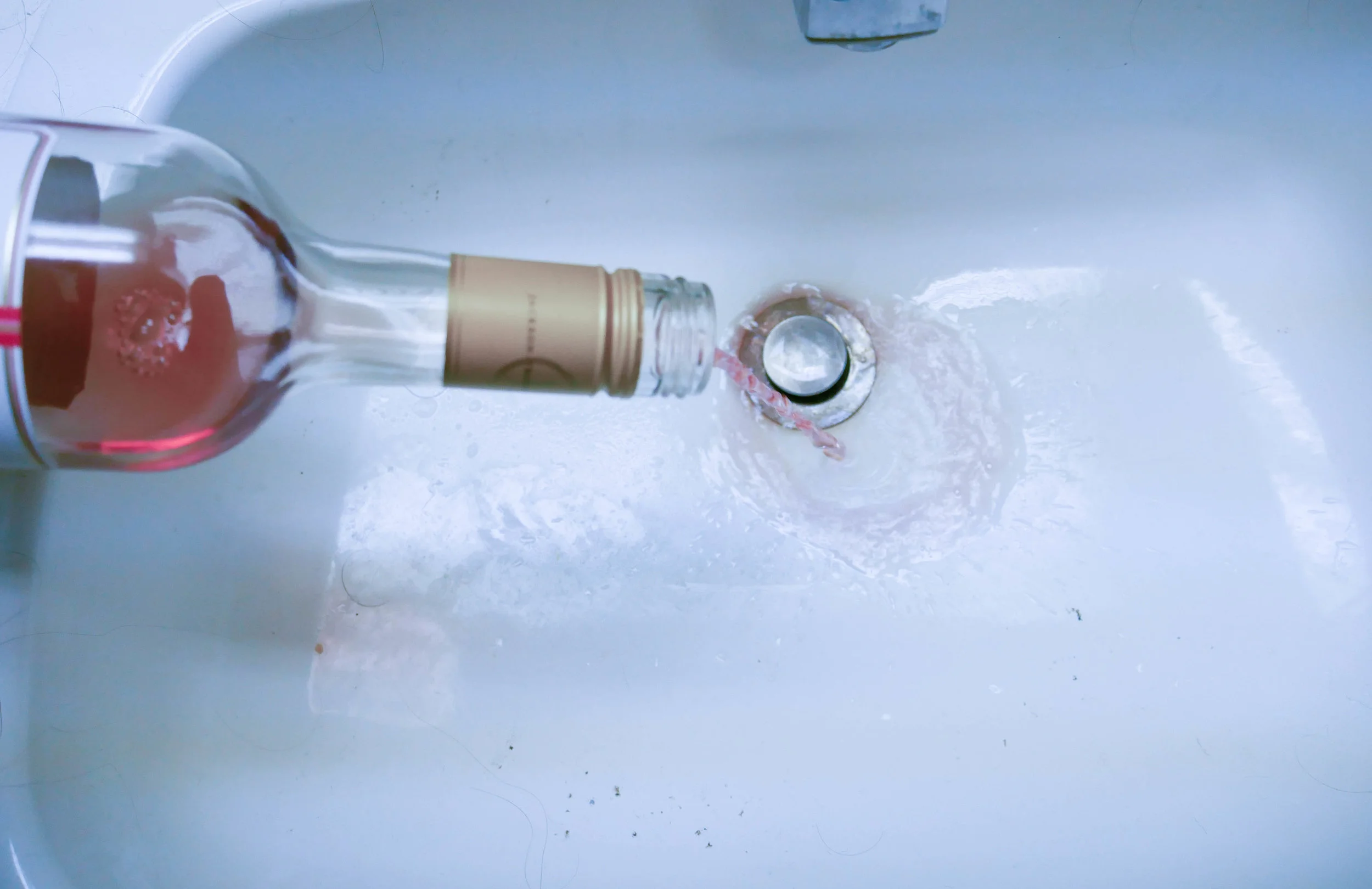Photo by Nina Jeffery/CanCulture.
By: Sara Jabakhanji
Sonja Koenig knows exactly what it’s like to witness loved ones battling cancer. At 10 years old, she lost two of her grandparents to the disease. Cancer is one of the leading causes of death worldwide, and this year she decided to fight back.
“Many of my tears have been dedicated to this awful illness and for once, I want to have the upper hand and make a true impact,” she said.
Koening, 25, works as a bartender in Toronto. She took on the challenge of going completely alcohol-free for the month of February to raise money for those affected by cancer.
Koenig is among thousands of Canadians that took part in Dry Feb this year. It’s an initiative run by the Canadian Cancer Society that challenges Canadians to give up alcohol for the month of February in order to raise funds for cancer research and support services.
In recent years, the fundraiser has grown increasingly popular with more participants each year Like Koenig, many choose to do it to honour people in their lives who have dealt with cancer.
Koenig began the year intending to take a break from alcohol, but after coming across a Dry Feb profile that belonged to a friend of hers, it all clicked. She realized she could raise funds while also staying sober.
“It was like the cherry on top and [it] gave me the extra incentive to make it happen,” she said.
Koenig said that since then, it has been an ongoing personal journey dealing with friends and family members of all ages who battled different kinds of cancer.
In 2016, her mom was diagnosed with breast cancer and Koenig witnessed her battle.
She said she’s proud to say that her mom “kicked cancer’s butt.”
“She has shown everyone who knows her how strength, faith and positive thinking can aid in such a difficult battle,” she said.
For those working behind the counter like Koenig, giving up alcohol is anything but easy. Gatherings after work when she and her coworkers could relax and drink made it tricky to commit to being alcohol-free, especially after a long shift.
Luckily, Koenig had a strong support system. She said that many friends offered to pass on drinks when they were with her, or to do something social that didn’t involve alcohol.
She said being around alcohol is a constant temptation she can’t escape, but she managed to work her way through it for the month, reminded of the impact that cancer has had on her family.
Photo by Nina Jeffery/CanCulture.
Drinking and cancer risk
Cancer is linked to 30 per cent of all Canadian deaths, making it one of the leading causes of death in Canada.
Elizabeth Holmes, a health policy analyst for the Canadian Cancer Society, said that drinking too much alcohol heightens your risk of developing certain kinds of cancer.
“We’ve known this for 30 years now,” Holmes said. “That’s why we see the increase in the head and neck cancer.”
Heavy drinking has been linked with cancers of the mouth, throat, esophagus, liver, colon, rectum and breast. A study by the National Institute of Alcohol and Alcoholism found that when people cut out drinking, their risk for developing cancer plunged.
Dry Feb aims to get Canadians to drink at less harmful levels by encouraging them to take a short break from alcohol and reflect on their drinking habits. Meanwhile, they’re raising money for those already affected by the disease. Participants can sign up as individuals or form a group and make this challenge a team effort.
This is the third year Holmes has participated in the initiative, making it an annual tradition. This year she decided to join a team of three with her co-workers so they could encourage each other throughout the month.
“At its heart, Dry Feb is definitely an individual event,” Holmes said. However, she said that being part of a team helped her along the way.
“There is some competition when you are part of a team, like who’s going to be the one to get the most funds,” she said, “because we’re all in it to raise as much as we can.”
A national issue
It might not come as a surprise that Canadians love to drink. In fact, a 2017 World Health Organization report found that Canadians drink more alcohol per capita than the global average. Statistics help to understand how these drinking patterns were formed over time.
Whether they’re celebrating a friend’s nineteenth birthday with a glass of champagne, or going out for the occasional cocktail, drinking has become a lifestyle habit that Canadians often adapt as they get older.
Less alcohol consumption is linked to a decreased risk of cancer. So, just how much drinking is too much?
Holmes said that those who choose to drink should aim to minimize their intake by keeping it to less than one drink a day for women, and less than two drinks a day for men.
In the Society’s follow-up surveys collected in the following months, around 70 per cent of Dry Feb participants reported a significant decrease in their drinking. Holmes said many also reported that they became more aware of their alcohol consumption and how often they decide to drink in the months following.
Resetting your tolerance
Alcohol has been listed as one of the top three causes of cancer deaths worldwide. According to the Canadian Cancer Society, in 2015 an estimated 10,700 Canadians were diagnosed with cancer found to be caused by alcohol.
Studies show that a short break from drinking can in fact spark healthier drinking habits and help cut down on alcohol consumption. It’s also better for your liver, and can help you lose weight and get more sleep.
The Canadian Cancer Society recommends the 30 day break for social drinkers, as they say it can do wonders for your overall health.
The frequency of drinking and the amount consumed, as well as family history are all factors that affect how fast tolerance can grow. Every time you drink alcohol, you begin to build a higher tolerance.
For those who drink regularly, a break also allows the body to ‘reset’ its tolerance for alcohol. The higher someone’s tolerance is, the more difficult it is for their body to recognize what isn’t normal. Having an alcohol-free period every so often can help tackle heavy drinking by reducing that tolerance.
Support is key
Pablo Doskoch, a student at the University of British Columbia, was the top fundraiser of this year’s Dry Feb. Doskoch said he found the experience rewarding both in taking a break from alcohol and raising money for cancer research.
He said he did Dry Feb as a token of support for his father.
In December of 2016, Doskoch’s father was diagnosed with glioblastoma brain cancer, and continues to fight the disease. This inspired Doskoch to participate for the first time last year, and once again this year.
“With my father’s ongoing battle with brain cancer and many others who are also battling this horrendous disease, it is the least I can do to try and support everyone’s fight against cancer,” he said.
Doskoch explained that socially, abstaining can definitely be a struggle.
“[After] a long week, going out for dinner with friends after school and wanting to have that drink is tough.”
Through this break from alcohol, Doskoch discovered how declining to go out for drinks with friends can make an impact on drinking habits in the long run.
“Being a young kid in university, my peers are often drinking and want [me] to join them, but saying no is important,” he said.
Photo by Nina Jeffery/CanCulture.
The results
Doskoch and Koenig both surpassed their initial target goal, raising significantly more than they had anticipated.
Having participated in Dry Feb before, Doskoch wanted to aim higher this year and was able to surpass his $8000 target goal by more than $500 dollars.
Koenig said she entered the month with the goal of raising $500 and came out with $2043.60 in donations.
“I think it’s such a beautiful thing to watch people come together for such a good cause,” she said.
Koenig said she would like to see the funds put towards not only cancer research projects but additionally, towards programs and facilities that provide cancer patients and their families with emotional and social support, such as Gilda’s Club Simcoe Muskoka.
She said she knows first-hand the difference these programs can make on people’s battles with cancer. “Although it is difficult, I can say that I’ve had the privilege of witnessing how such a horrible disease can bring people together under heartbreaking circumstances,” Koenig said.
This piece was edited by Jacklyn Gilmor.







